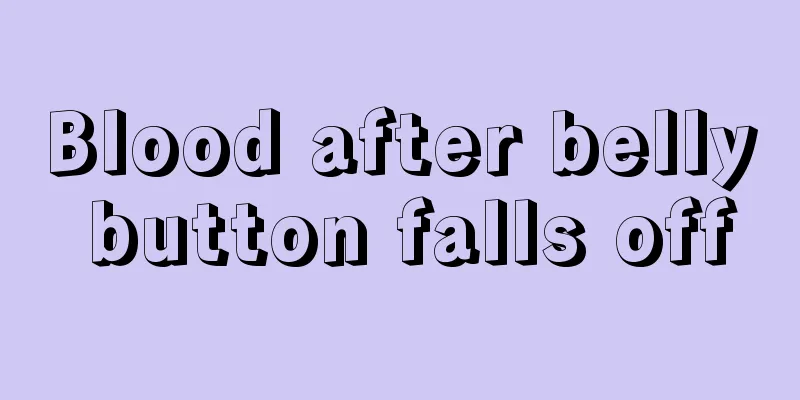How to deal with the baby always spitting up milk during confinement

|
Spitting up milk is a very common phenomenon in babies. Generally, all babies will spit up milk. This is because the baby's throat is not yet fully developed and there is no way to swallow all the food into his stomach, so spitting up milk will occur. Therefore, parents should put a bellyband on their babies, so as to prevent the milk from wetting the clothes. So let's learn how to deal with postpartum babies who always spit up milk. Spurting up of milk is usually caused by the baby inhaling air while feeding. After the air enters the stomach, because the gas is lighter than the liquid and is located at the top, it can easily break through the cardia and come out, and it will also bring out some milk, which will cause milk regurgitation. Therefore, when feeding, let the child's mouth cover the entire nipple, leaving no gaps to prevent air from entering. When feeding with a bottle, the milk should completely fill the nipple. Don't be afraid that the milk will be too strong and only reach half of the nipple, as this will make it easy for the baby to inhale air. After feeding, it is best to let the child lie on the adult's shoulder and pat the child's back with your hand to allow the inhaled air to escape. After feeding, be gentle and use less movement when picking up and putting your baby down. Shaking too hard to feed , it is easy to regurgitate or spit up milk. The amount of milk that comes out during belching is generally small and will not have much impact on the child's growth and development. It will get better naturally as the baby gets older. Babies are prone to spitting up during or just after feeding. The solution to this situation is, first, do not rush to feed the baby. Pick the baby up and burp him during feeding, and then continue feeding. This way, the baby will not easily vomit milk immediately after feeding. In addition, if the child spit up severely, if the child is fed with milk powder, he or she can use anti-spilling milk powder. Several major brands of milk powder now have this variety. The most common case of milk regurgitation is physiological milk regurgitation. This is because the stomach of a baby is horizontal, which allows air to enter easily. After feeding, the gas is pressed out, and when the gas is expelled, the milk also flows out. To solve this situation, first, don't be too hasty in feeding. After feeding, hold the baby upright and burp him for two to three minutes each time. If the baby's burps are not well discharged, you can pat the baby's back after ten to twenty minutes. This can reduce or stop the burping. In addition, for children with severe regurgitation, you can feed them by placing them on their right side after feeding. Because feeding while lying on the right side can allow milk to flow out from the pylorus and reduce spitting up. The nasal cavity of a baby is not fully developed yet, so it is relatively narrow and nasal congestion is likely to occur. Therefore, it is normal for nasal congestion to occur again in the evening after being cleaned in the morning, so there is no need to worry. If the nasal congestion is severe, the nasal crusts should be cleaned at an appropriate time, usually before feeding and before going to bed. This will allow the child to feed well and sleep well. The above article describes in detail some ways to deal with your baby's spitting up. If spitting up really occurs, first of all, you must not panic. You must prevent the milk from flowing into the baby's nostrils. If the nasal cavity is blocked, it will be very troublesome. |
<<: Symptoms and treatment of cerebral palsy in children
>>: What are the stool forms of infants at a few months old?
Recommend
What's wrong with my baby's wheezing sound in his nasal cavity?
For mothers, every move of their baby concerns th...
What to do if your one-year-old baby has a rash
The physique of a newborn is relatively fragile. ...
Why can't you kiss a baby on the mouth?
Kissing is an expression of love. Many parents li...
Does your child vomit out everything when he coughs while sleeping at night?
The baby's stomach and intestines are very we...
What is the cause of the peeling on the child's feet?
It is quite common for children to have peeling o...
What should I do if my baby cries and holds his breath?
I became a mother a few months ago. As a first-ti...
When is the best time to have hernia surgery in children?
Currently, the best treatment for pediatric herni...
What to do if a child has acute gastroenteritis and vomits
Children's stomachs are relatively weak. Once...
What should I teach my 10-month-old baby?
Newborns need to be taught by their parents to le...
At what age do children start to change their teeth? How to take care of them during the change of teeth
Each of us will go through the process of tooth r...
Reasons for excessive lead in children: attention should be paid to food, clothing, housing and transportation
Now more and more children are suffering from lea...
Symptoms of emotional disorders in children
Emotional disorders are a type of mental illness....
What's wrong with a child having a low fever and sweating?
Some children often have fevers when they are you...
How to prevent neonatal hemolysis
Many genetic diseases can occur in newborns, and ...
How to judge the symptoms of baby coughing during sleep at night
Many parents will find that their babies often co...









